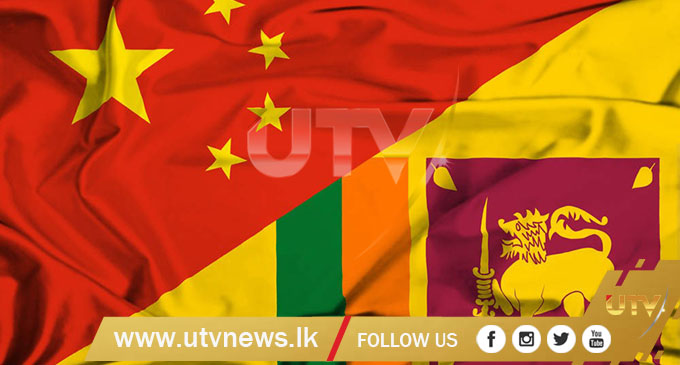(UTV|COLOMBO) – According to the Wall Street Journal, the US senators are pressing the Trump administration to detail what it is doing to deal with Beijing’s financing of international infrastructure projects that have left many countries indebted to China and potentially in need of bailouts.
In a letter to Treasury Secretary Steven Mnuchin and Secretary of State Mike Pompeo, the senators asked officials how they will push the International Monetary Fund to address problems arising from China’s global investment plan, the “Belt and Road Initiative.”
About 70 countries are hosting projects funded under China’s plan, with many of them in deep debt distress. Sri Lanka has already asked for an IMF bailout, and Pakistan is expected to request one this fall after indebtedness stemming in part from a $62 billion project to upgrade Pakistan’s infrastructure, including projects like a $2 billion air-conditioned subway system.
“In light of the IMF’s potential bailout of Pakistan in the coming months, we respectfully request a response to the following questions,” wrote 16 senators, including David Perdue of Georgia and China hawks like fellow Republicans John Cornyn of Texas and Marco Rubio of Florida. Among the senators’ questions: “As the largest contributor to the IMF, how can the United States use its influence to ensure that bailout terms prevent the continuation of ongoing BRI projects, or the start of new BRI projects?”
A Treasury spokesman confirmed receiving the letter. IMF spokeswoman Randa Elnagar said that “the IMF always performs a rigorous debt sustainability assessment before deciding to lend to a country.”
China’s massive “Belt and Road Initiative,” which is intended to fund infrastructure projects like superhighways, railroads, harbors and airports, has been a growing source of concern in Washington. Congress fears that China is using the projects in a bid to project global dominance.
“As financially strapped countries negotiate with China to free themselves of mounting debt, Beijing has extracted onerous concessions, including equity in strategically important assets,” the senators wrote. “Further, Beijing has repeatedly used economic pressure to affect foreign policy decisions.”
In March, the Center for Global Development, an internationally-focused think tank in Washington, estimated that the program had left eight countries financially vulnerable because of the large amount of borrowing they’d done for China’s projects. While the scale of the Belt and Road Initiative is considered a modest part of Chinese lending, the sums are enormous from the perspective of some of the smaller countries that are undertaking large projects.
The center’s report highlighted Djibouti, Kyrgyzstan, Laos, the Maldives, Mongolia, Montenegro, Pakistan and Tajikistan as countries of concern.
The concerns have become most acute in Pakistan. The election last month handed power to a new prime minister, former cricket star Imran Khan, who is facing a growing fiscal and balance-of-payments crisis that may lead the country to seek a bailout. Pakistan has received more than a dozen past bailouts from the International Monetary Fund.
Pompeo has already raised the concern that a new IMF bailout of Pakistan would in effect repay Chinese bondholders or China itself.
Mr. Mnuchin has also raised concerns and sought to enlist the IMF to do more about the program.
In April, Mr. Mnuchin called for the IMF to do more to increase the transparency and improve the governance of China’s infrastructure lending.
“Increasingly we see instances where [low-income countries] have borrowed excessively, and unsustainably, from large, often nontransparent emerging sovereign creditors like China and/or private creditors,” Mr. Mnuchin said at the spring meetings of the IMF.
The IMF is controlled by its 189-member countries and Mr. Mnuchin, as Treasury Secretary of the world’s largest economy, also serves as the IMF’s most powerful governor.
The IMF has taken a mixed view on Belt-and-Road spending, on the one hand welcoming the infusion of investment in countries that have significant infrastructure needs, while at the same time urging China to improve the governance of transparency of the program.
Last month, the IMF completed its annual review of China’s economy, saying the Belt-and-Road Initiative could “fill large and long-standing infrastructure gaps in partner countries, boosting their growth prospects, strengthening global supply chains and trade, and increasing employment.”
But the IMF also told China the initiative needed “a clearer overarching framework” as well as better oversight, more focus on debt sustainability of partner countries and clearer ways to resolve disputes, among other concerns.
Chinese authorities have told the IMF that they believe these concerns are overstated.
Jin Zhongxia, China’s executive director at the IMF, responded to the IMF’s concerns in a statement last month, saying that President Xi Jinping has made clear that China will “promote the Belt and Road Initiative based on relevant international standards and rules.” He also said that China “will continue to make serious efforts to fill data gaps.”
[alert color=”faebcc” icon=”fa-commenting”]Keeping up to date with breaking news while you are on the move is now simple with UTV Alerts [textmarker color=”8a6d3b”]Type REG UTV and send to 77000[/textmarker] on your Dialog, Airtel, or Hutch mobile connection[/alert]

